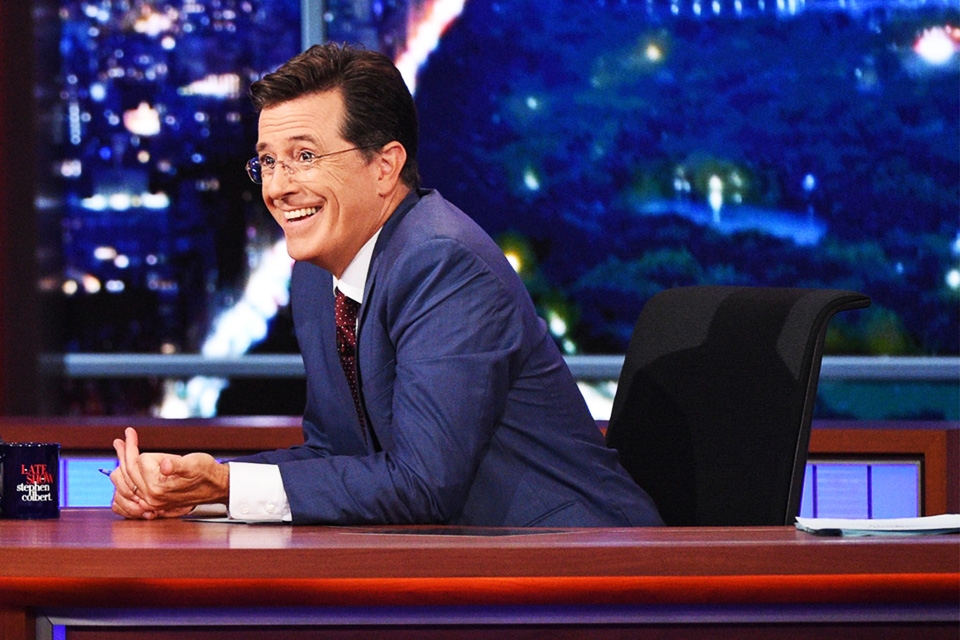
By Zachary Landau | the Duquesne Duke
Last week, “The Late Show with Stephen Colbert” debuted to an audience of 6.6 million viewers according to the Nielsen ratings company. The show featured guests George Clooney and potential presidential candidate Jeb Bush (R), as well as a special cameo from fellow late-night host Jimmy Fallon. The following episodes were similarly star-studded with celebrities like Scarlett Johansson and Vice President Joe Biden (D) making an appearance.

Stephen Colbert chats to Stephen King on his new late night talk show, “The Late Show with Stephen Colbert.”
The comedian’s debut comes in the wake of previous host David Letterman’s retirement in May. Colbert ended his own highly acclaimed show, “The Colbert Report,” last year and has been releasing different types of content on the “Late Show’s” website in anticipation of the premiere.
The show’s format itself does not deviate far from the late-night talk show formula, beginning with jokes and ending with guests. While this was not entirely unexpected, as CBS would probably never allow a dramatic change from Letterman’s style, a little more experimentation would not have gone amiss from someone who spent the better part of a decade creating an alter-ego and an extremely zealous fan-base.
Colbert seems aware of the lack of direction left in the passing of his old character but uses the opportunity to develop a new character that is more in line with who he is: a nerd who got lucky. While he knows he comes from a very successful background, he also hints throughout the show that network television is a brave new world for him. His opening monologue even begins with the “Hello, nation,” greeting typical of his old show, then jokes, “I don’t know what that means,” as if to finally lay the “Colbert-Report” personality, with all of its conceited tendencies, to rest.
The new Colbert does carry some tropes from the old persona, most notably how unflappable he can be. His stoic disposition while manning the desk and with his guests was in stark relief from how other hosts typically laugh along with their audiences. He also takes his old character’s interest in deconstructing his guests’ arguments on-board, though he now sounds more interested in the arguments themselves rather than trying to inflate his character’s ego.
That being said, “The Late Show with Stephen Colbert” is still a different beast from the typical late-night fodder.
As for the first week, it stands as a testament to Colbert’s talent that he can still make people laugh at what is in essence the same breed of satirical comedy that his forerunner Jon Stewart brought to the mainstream back in the 90s. His take on the late-night formula was refreshing, and it will be interesting to see if Colbert can carry the momentum of his debut into stronger ratings. If the content of the first week is anything to go by, it will be interesting indeed.
Still, it will be a difficult legacy to live up to. “The Colbert Report” ran for nine years, 10 seasons and 1,447 episodes. It’s a tough act to follow for anyone, especially with Colbert as so much of the comedy relied on his over the top character he created for “The Colbert Report.” If his new show is to succeed, Colbert will have to thoroughly establish his new character and make him just as funny as the last one.




